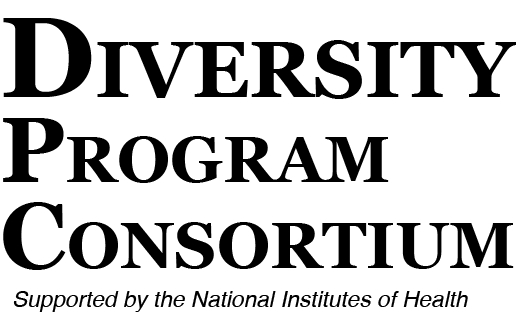



Data briefs on this page include:
Research has shown that institutional climates supportive of diversity and factors that contribute to a sense of belonging contribute to faculty retention and success for women and individuals from racial and ethnic groups underrepresented (URM) in science, technology, engineering, math, and medicine (STEMM) (Hurtado et al., 2012; Jayakumar et al., 2009; Johnson, 2012).
Myriad stressors plague college students today. While environment, level of resources, expectations, and relationships have all been identified as major sources of stress for students (Hurst et al, 2012), academic stress represents a key factor influencing academic outcomes (Debrard et al., 2004; Palmer et al., 2009; Zajacova et al., 2005).
Every spring, the Enhance Diversity Study (EDS) administers surveys to participants who are current or former students at the university campuses that have Building Infrastructure Leading to Diversity (BUILD) programs (Norris et al., 2020). The COVID-19 pandemic led to disruptions in every aspect of life worldwide, and university campuses had to drastically alter the way they functioned, with instruction, mentoring, and research activities shifting to virtual spaces or closing campuses altogether (Grineski et al., 2022).
The changing educational landscape and the rise in multifarious and nontraditional student populations invite campuses to adjust their programs and services to effectively meet student demands and compete with other campuses for top talent. Ensuring students have access to a diverse learning environment, one that includes a diversified pool of faculty is critical to meeting students’ needs.
In the Spring of 2021, the Enhance Diversity Study (EDS) invited professors, lecturers, and instructors from the DPC BUILD institutions to participate in the 2021 Faculty Annual Follow- up Survey (FAFS). Eight items were added to the FAFS 2021 to allow respondents to describe how the COVID-19 pandemic impacted their personal and professional life.
The 10 NIH-funded BUILD programs are experiments at the student, faculty and institutional levels with the goal of creating a knowledge base to enhance diversity in the biomedical sciences. Two desired outcomes (also known as Hallmarks of Success) are specifically related to institutional climate: 1) commitment to efforts that create, enhance, and/or maintain diversity and inclusion at all levels of the institution (INST-1), and 2) evidence of creating, enhancing, and/or maintaining diverse, inclusive, and culturally appropriate research and research training environments (INST-2). BUILD faculty members at BUILD institutions are in a key position to assess institutional climate, diversity and inclusion efforts, and institutional commitment to diversity. This analysis found few differences in perceptions of institutional climate and commitment among the faculty by their BUILD involvement in the early phase of the BUILD programs. This brief documents these differences in order to provide a baseline of faculty perceptions of institutional climate and commitment for future analyses of institutional change over time.
The use of student-centered pedagogy (SCP) is an approach that engages students as active participants in the learning process. Faculty use of evidence-based practices in teaching and mentoring is hallmark (FAC-17) of the NIH Diversity Program Consortium (DPC). Data from the 2016 Higher Education Research Institute (HERI) survey of faculty found that faculty at BUILD institutions who were BUILD-affiliated did not differ from other faculty at those institutions in their use of evidence-based SCP methods, but utilization of SCP does vary by academic rank, gender, and discipline. This baseline data on BUILD faculty shows that their use of SCP at the beginning of this program was similar to national averages.
There is limited information on the educational experiences of sexual and gender minority students (SGM, i.e., those who identify as part of the lesbian, gay, bisexual, queer [LGBQ] or transgender communities) in STEM. Data from the HERI 2016 Freshman Survey (TFS) at BUILD institutions indicate that among students intending to pursue biomedical majors, a smaller proportion of SGM students intend to pursue degrees in natural science and engineering (NSE) disciplines and a higher percentage intend to enter biomedical behavioral/ social science (BSS) disciplines relative to heterosexual and cisgender (HCG) students. Given the need to develop and expand the biomedical workforce, and considering that SGM status can be another dimension of diversity and inclusion, the experiences of SGM students aspiring to major in biomedical fields warrant further examination.
Science identity represents the extent to which students conceive of themselves as scientists and is one of the hallmarks of the NIH Diversity Program Consortium (DPC).a Data from the 2017 Student Annual Follow-up Survey (SAFS) indicates that BUILD students in biomedical majors have a higher average science identity score than non-BUILD biomedical students at the same institutions. The higher science identity among BUILD students occurs for most racial/ethnic groups and for all items in the science identity scale. Given the importance of science identity to continuing on the biomedical career pathway, these results suggest that BUILD students are more likely to persist in science majors and careers than other biomedical science students at their institutions.
A major NIH initiative is underway to determine the most effective ways to engage students from diverse backgrounds in biomedical research, and to prepare students to become potential future contributors to the NIH-funded research enterprise. The 10 grantees vary widely, from Historically Black Colleges and Universities (HBCUs), where most biomedical graduates are from underrepresented groups, to large public schools with moderate representation of underrepresented groups among their biomedical graduates. Graduation data from four years pregrant and two early years of the BUILD program show a general trend of constant proportions of underrepresented minority (URM) students graduating in biomedical majors, with a few institutions showing a rapid growth in the numbers that reflects overall increases in their number of students graduating with biomedical degrees over that time. Since few graduating students would have been involved in the new programs in the period shown, these trend data are best considered baseline or preintervention information that can be used in future years to help assess the institutional impact of the BUILD grants.
The National Research Mentoring Network (NRMN) provides researchers across all career stages with mentorship and professional development programming that emphasizes the benefits and challenges of diversity, inclusivity and culture (https://nrmnet.net). Individuals register on the NRMN online portal to use virtual mentoring, access online resources, or sign up for a wide variety of training events. When enrolling through the online portal, all registrants are required to identify as a mentor or mentee, regardless of how they use NRMN.
Within the biomedical disciplines, faculty-student mentorship is a key component for success. Mentors provide support, motivation, and advice to students that increase their social capital in research, as well as their skills and identities as scientists. Increasing mentoring self-efficacy is one of the hallmarks (FAC-3) that serves as an intermediate outcome for the NIH Diversity Program Consortium (DPC).1 Data from the 2016-2017 HERI Faculty Survey2 finds that biomedical faculty respondents at the 10 BUILD sites report having higher mentoring self-efficacy scores if they are involved with the BUILD program than if they are not. This suggests that BUILD students are likely to have access to higher quality mentoring than other biomedical students.